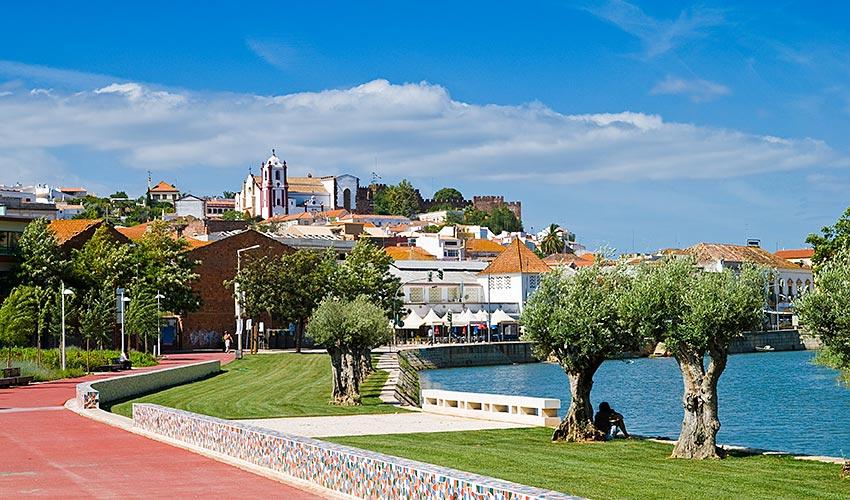Cascading prettily down the side of a hill under the protective mantle of its Moorish castle, the picturesque town of Silves has always enthralled visitors with its tales of past riches and legends of exotic Arab princesses.
Although an important agricultural area and Portugal’s main orange producer, present-day Silves’ quaint, rural attractiveness bears little witness to the splendour of its past. Capital of Al-Faghar (kingdom of the Algarve) during the Arab occupation of the Iberian Peninsula, Silves or Xelb as it was called by the Arabs, boasted such beautiful buildings, fabulous treasures and lavish bazaars that it was referred to as the ‘Baghdad of the West’.
Nowadays, the fortified castle walls are the only reminder of Silves’ past magnificence. Arab remains consist of underground grain silos, a 13th Century 10 metre-high (33 ft) water tank and a 60 metre-deep (197 ft) well. The sandstone turrets provide lovely panoramic views of the countryside and the inner gardens are a beautiful spot for a stroll.
The Christian re-conquest of Silves in the 13th Century was celebrated with the construction of the cathedral on the site of a former mosque. It retains many Gothic elements and once housed the tomb of former king of Portugal, João II.
Silves is especially lively during the summer Medieval Festival when the town re-enacts medieval life and the historic centre is filled with jugglers, minstrels, acrobats and street vendors selling regional food and handicraft.

 English
English  Português
Português  Deutsch
Deutsch 

